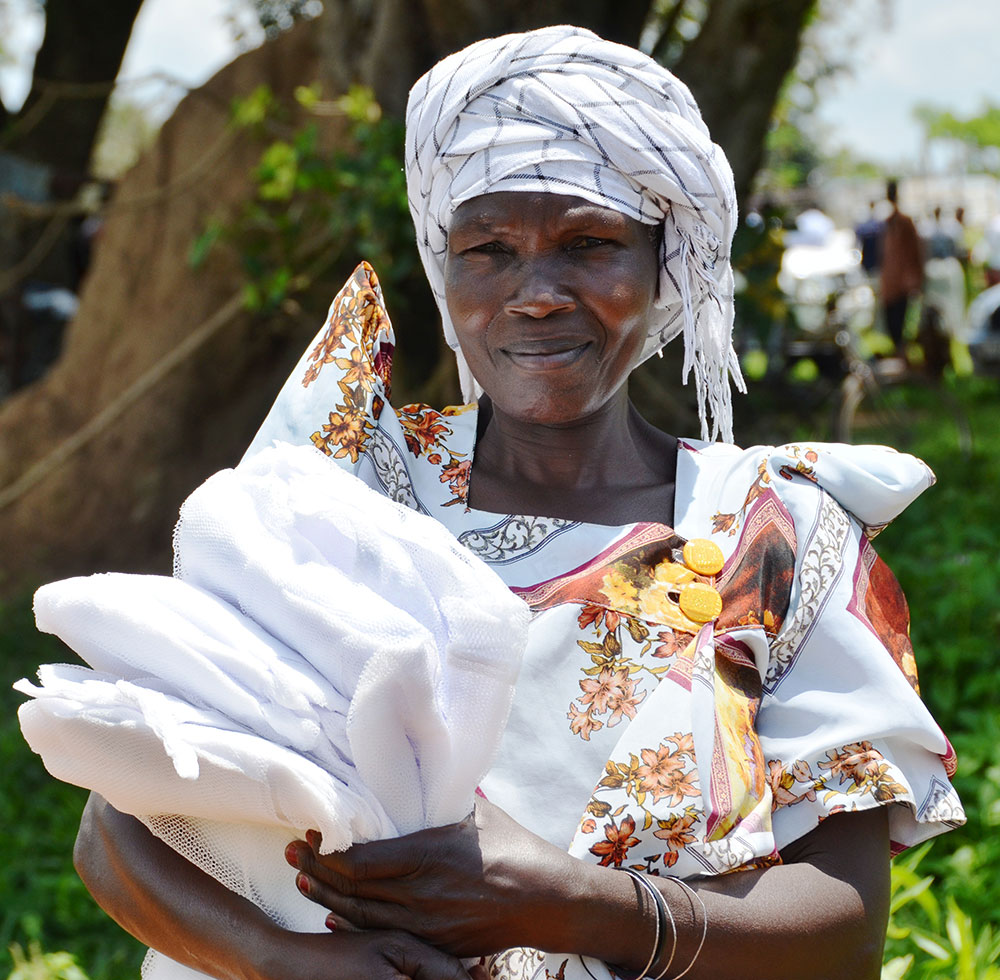Malaria is endemic in all of Uganda and continues to be a leading killer of children as well as a significant detriment to the country’s economy. To protect the most vulnerable populations – pregnant women and children under the age of five – from malaria-carrying mosquitoes, the President’s Malaria Initiative (PMI) and the Global Fund to Fight AIDS, Tuberculosis and Malaria (Global Fund) have supported the Uganda Government to distribute insecticide-treated mosquito nets (ITNs) through antenatal facilities. In 2013, recognizing the need to accelerate and extend ITN coverage to all Ugandans, the country embarked on a historic mass universal coverage ITN distribution campaign that concluded in 2014. More than 22 million mosquito nets were distributed nationwide in all 112 districts of the country, and Uganda achieved its goal of distributing one net for every two people based on the number of households targeted.
PMI supported this effort by procuring 1,752,577 ITNs and supporting the distribution of more than 19 million ITNs (procured by the U.K Department of International Development [DFID], Global Fund, and World Vision). The Uganda People’s Defense Force worked with Ugandan police and other partners to distribute the ITNs, transporting them and ensuring security at the distribution points. This is the largest universal coverage campaign ever in Africa, achieving 91 percent coverage in rural areas at an estimated distribution cost per net of $0.89.
The committed leadership of the Ministry of Health (MOH), combined with the effective partnership among major donors and implementing partners (e.g., PMI, DFID, Global Fund, World Vision), was a key factor that contributed to the success of the campaign. The campaign also benefited from a well-coordinated stakeholders forum, a national coordinating committee with hard-working and diligent members, clear guidelines for the distribution of ITNs, dedicated campaign taskforces at multiple levels (district, sub-county, parish, village), highly committed village health workers, the presence of security personnel at all levels, and the support of communities throughout the country.
Mr. Fred Okunyo, a beneficiary of the campaign, noted the impact that ITNs have had: “There is a great, great change. Since the nets, children seem healthier. You can see them now, happy and playing. Their faces look good. Before, you would not find them playing like this, you would mostly find them in bed, sleeping. Even us old ones, we look good, too. We are now stronger and can do our farming to better support everyone.”

